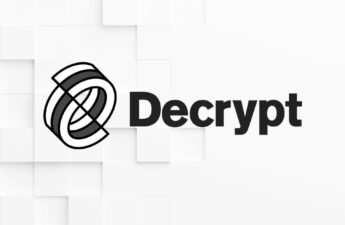Hollywood’s independent film industry is struggling.
Many low to mid-budget film producers are finding it near impossible to secure financing due to the pandemic. And because of Hollywood’s obsession with big-budget tentpoles and streaming platforms, the producer of the indie horror hit “It Follows” recently said that indie films are “dying a slow death.” But film producer Niels Juul—of Martin Scorsese’s “The Irishman” and “Silence”—sees Web3 as a solution.
In an era of superheroes, Netflix, and $500 million budgets, Juul believes independent filmmaking has suffered, with “algorithms” driving more decisions than people.
“I know so many great scripts that are lying out there not getting made at sort of 10, 15, 20 million dollars because studios are looking at Marvel stuff, franchise stuff,” Juul told Decrypt in an interview.
In his view, the indie film pipeline has been bottlenecked, and many film producers are left with streaming services like Netflix as their only viable financing option.
While he’s new to crypto, Juul is enthusiastic and passionate about the potential for DAOs and NFTs to solve the indie film industry’s financing problem.
Last year, Juul created NFT Studios with the aim of using NFTs—unique blockchain tokens that signify ownership over an asset—to essentially crowdfund low-budget titles. NFT Studios’ first film, “A Wing and a Prayer,” is its proof of concept and has a $10 million budget.
But then the Securities and Exchange Commission (SEC), crypto’s most notorious regulator, sent NFT Studios a letter.
“We started out a little bit sort of blazing saddles[…] and then we actually did get a letter from the Securities and Exchange Commission saying, ‘Wait a minute, are you selling commodities here? Because if you’re trading NFT investments into a movie, you’re going to be regulated like everyone else, and you just can’t do that for U.S. investors,’” Juul explained.
After hiring a legal firm, NFT Studios came to the conclusion that its best option would be to start a DAO, a decentralized autonomous organization that uses governance tokens (in this case, the tokens are NFTs) to make collective decisions. Now, Juul claims that NFT Studios and KinoDAO are regulatory-compliant (Kino is a German word for movie theater).
KinoDAO is what Juul calls “a mini studio that runs by itself.” In a sense, it’s a decentralized studio within NFT Studios.
This summer, KinoDAO will release its first NFTs to help fund future film projects. Each NFT will be a membership pass of sorts, granting voting power in studio decisions as well as other benefits like free merchandise, film festival afterparty tickets, their name in film credits, and more NFTs.
KinoDAO is launching three NFT membership tiers: General Admission, Silver, and Gold. The gold tier offers the most perks, giving holders the opportunity to cameo in an NFT Studios film, hang out on set, and have an NFT of their choice appear in a film as an Easter egg.
Juul believes that if successful, KinoDAO will be a self-funding, infinite machine.
“Funds from each movie will roll into the next movie, and the next movie,” he explained.
But relying on film revenue to fund future projects is a risky proposition. As Arthur De Vany, Professor of Economics at University of California, Irvine, writes in his book “Hollywood Economics: How Extreme Uncertainty Shapes the Film Industry,” most films are unprofitable, with an estimated 78% of them ultimately losing money.
But Juul believes that KinoDAO and NFT Studios will truly allow filmmakers and NFT holders to create and contribute without being beholden to traditional Hollywood gatekeepers. NFT Studios will retain full control over its own intellectual property (IP).
It remains to be seen whether decentralized filmmaking collectives can actually compete in the film industry’s tough market, though, as most are only just getting started. Raking in $10-20 million for each film won’t be enough—in order to survive, NFT Studios and KinoDAO will need even more than that in order to pay its staff and deliver on its promises of merch and other perks.
Web3 is a relatively new concept for film industry professionals, but there is already some competition. Juul’s studios will have to compete with other big names launching Web3 film studios like the Roman and Francis Ford Coppola-backed Decentralized Pictures, an organization that’s also funding and curating indie films.
While NFT Studios and KinoDAO are working to decentralize the film development and production process, all films produced through the brands will be distributed in the traditional Hollywood manner.
“It would be a tragedy if we end up having no theaters left and everybody is in their bedrooms watching their thing[…] We’ve actually reached out to a very, very big theater group to say to them that we [are] very keen on having a large and wide theatrical window on each movie,” Juul said.
As for his thoughts on other creatives bringing Web3 to Hollywood, Juul isn’t concerned about the competition.
“The more, the merrier,” he said.
Want to be a crypto expert? Get the best of Decrypt straight to your inbox.
Get the biggest crypto news stories + weekly roundups and more!
Source: https://decrypt.co/101460/scorsese-niels-juuls-kinodao-nfts-fund-indie-films



